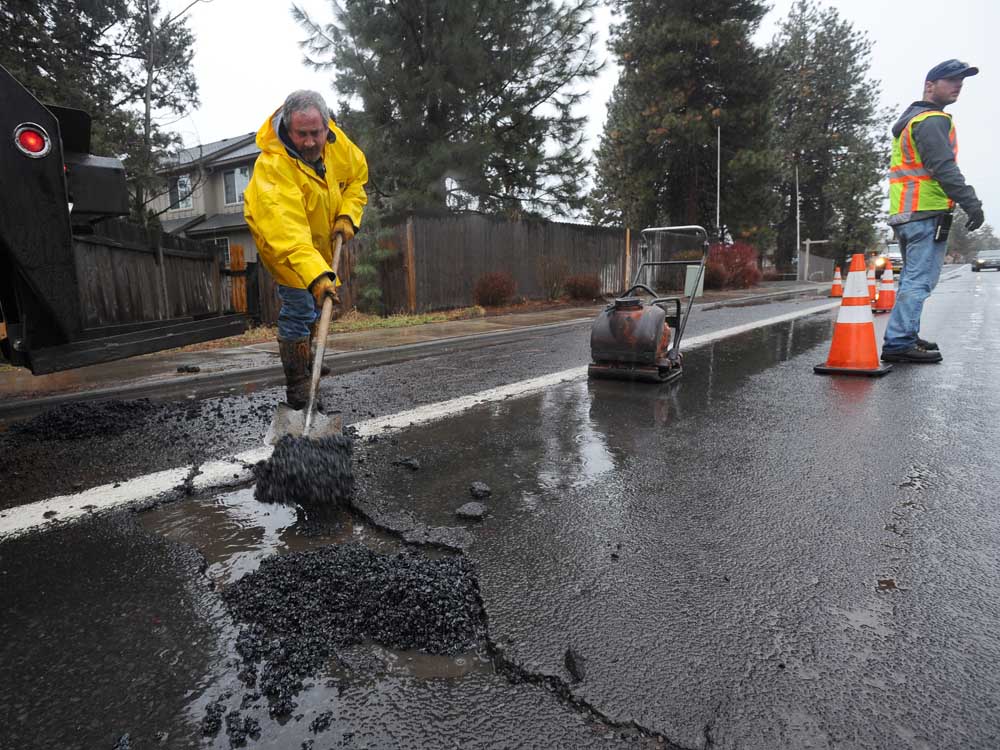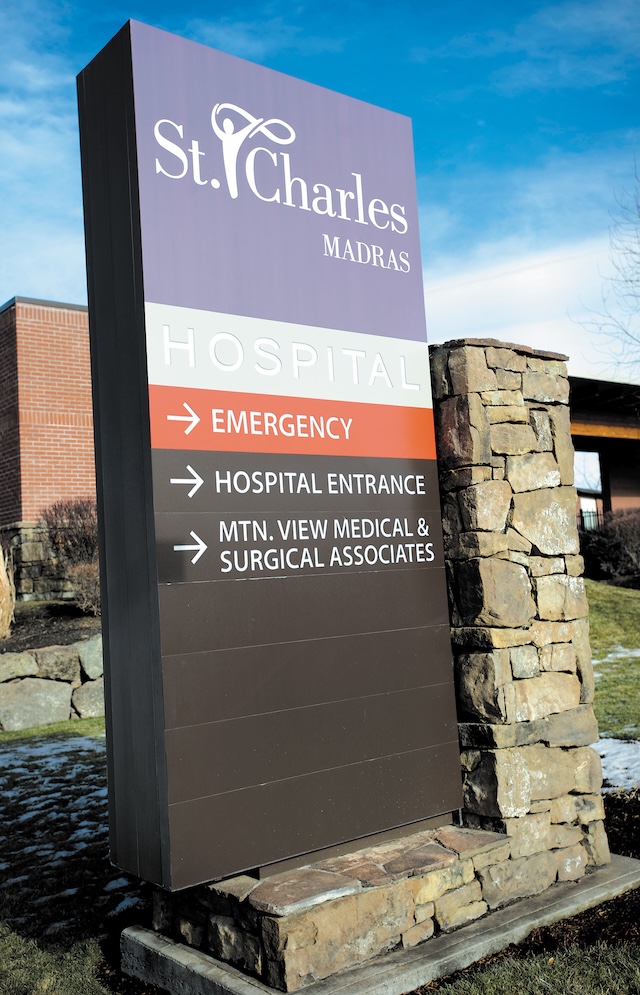Editorial: Bend transportation panel thumbs nose at motorists, city councilors
Published 12:00 am Tuesday, April 10, 2018

- Bend employees fill potholes on Studio Road in 2016. (Bulletin photo/ Ryan Brennecke)
It’s too bad policing government isn’t as easy as policing motorists, who can be cited promptly for ignoring the rules of the road. Bend’s Citywide Transportation Advisory Committee, which will make recommendations for the city’s road-plan update, has met only once. Already, though, it’s threatening to push the city’s transportation planning effort alarmingly off-course.
Somebody, please, pull this panel over before it’s too late.
Trending
Bend’s course has been marked by city councilors, who’ve adopted a handful of simple objectives for the purpose of moving “people and products around Bend efficiently, safely and reliably.” The objectives are as follows:
• Improve road conditions and update winter operations policies.
• Develop a short term capital improvement strategy, including use of Transportation Fund reserves.
• Involve residents and key stakeholders in developing policies that relieve congestion, improve ease of travel and safety, and identify funding options for desired levels of service.
• Expand transit service and work towards sustainable funding.
These objectives are, by design, broad. They do stress the importance of alternatives to single-passenger vehicles, notably transit services. But as they should, the objectives speak largely to the experience of the vast majority of Bend residents who get around by car or truck. Talk to the average Bendite about transportation, and odds are you’ll hear about the need to do the very things the objectives emphasize: relieve congestion, make travel easier and improve road conditions.
Trending
These objectives are neither outdated nor obscure. They’re in effect for the 2017-19 period and appear on the City Council’s home page, right beneath photos of the seven councilors themselves. Nonetheless, it seems that the city’s transportation advisory committee hasn’t been able to locate them. Either that, or its members and advisers consider the goals of Bend’s elected leaders relatively unimportant.
The manifestation of this disconnect appeared last week in the meeting agenda for a Bend Metropolitan Planning Organization committee. Included in the agenda for discussion purposes were a draft vision and draft goals produced during the first meeting of the city’s transportation advisory committee. They resemble City Council’s goals as closely as Portland resembles Bend.
The transportation committee’s goals and subgoals, unlike City Council’s objectives, are far too voluminous to repeat in full. But they follow logically from the first element of its proposed vision statement: “The City of Bend’s transportation system supports a city where all residents and visitors can move around safely and reliably on foot, by bicycle or transit, or in a car.”
In a car. Oh, by the way.
At least the proposed vision statement mentions cars. The draft goals (seven of them) and subgoals (20 of them) don’t mention Bend’s most popular mode of transportation at all. Not once. And there’s little else to suggest cars, trucks and the people who use them matter. Variations of transit, walking and bicycling occur on multiple occasions. Meanwhile, the wording in places seems carefully devised to slight cars.
Take, for instance, the single subgoal under Goal 1 (“Everyone can travel safely”): “Our transportation system prioritizes the safe movement of all people with an emphasis on the most vulnerable road users.” Who are the “vulnerable” road users this goal will emphasize? Here’s a hint: not you if you’re in a car. It’s telling that the first goal focuses on safety rather than on improving road conditions generally, as the City Council’s first goal does.
Even as they studiously avoid mentioning cars and trucks explicitly (not to mention relieving congestion), the committee’s draft goals have plenty to say about affordable housing, equity, the health benefits of people-powered transportation, and “responsible stewardship of the natural environment.”
The transportation committee, and the city, should care about all of these things, from supporting alternative forms of transportation to protecting the environment. But it should acknowledge the way people will continue to get around for the foreseeable future; it should recognize the importance of relieving congestion; and it should respect the priorities set by city councilors, who, unlike transportation committee members, were chosen by voters to pursue their interests. The fact that the committee’s goals do none of this — and, in fact, do just the opposite — makes you wonder whether they’re a deliberate act of defiance.
Assuming city councilors intend their own goals to be taken seriously, they ought to ask some tough questions. While it’s a good thing to involve citizens in the way the council is trying to here, what does it say about the process that the committee laid such an egg so quickly? Is there a lack of balance among its membership? Is there a problem with the guidance it’s receiving from city staff and others? Most importantly, what should councilors do?
The one thing they should not do is accept the status quo. Among other things, this wouldn’t be fair to the committee’s members. Their recommendations will end up eventually before council, which isn’t going to approve a set of goals so at odds with its own. Imagine if they did, then asked voters to approve a huge funding measure (a real possibility) to support a transportation plan that virtually ignores the mode of transportation almost everyone uses.
The results of such a vote would make the city’s disastrous gas tax — remember that? — look like a triumph by comparison.








